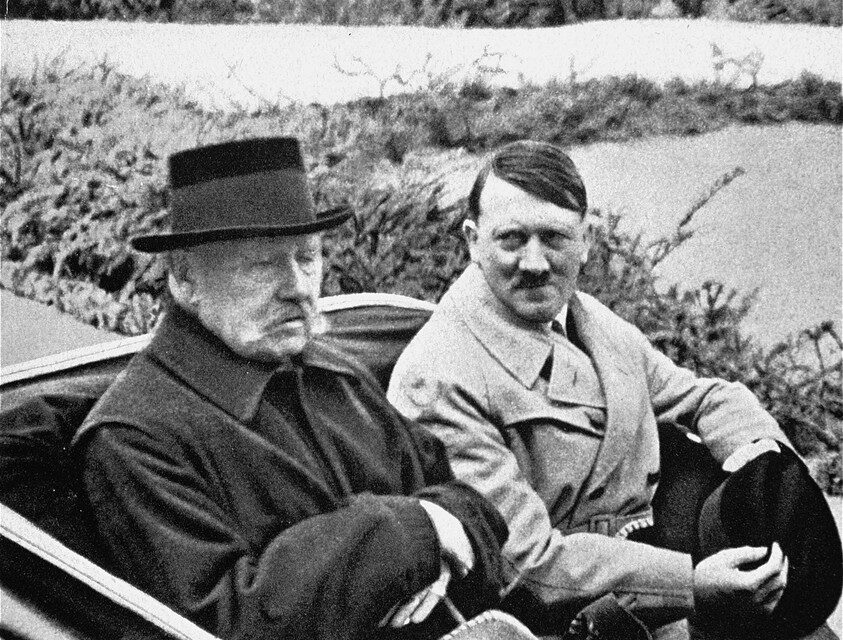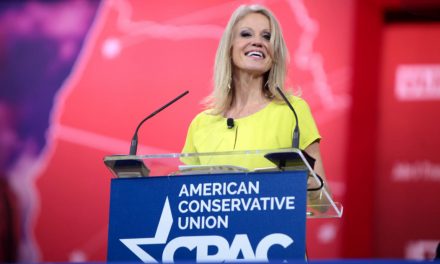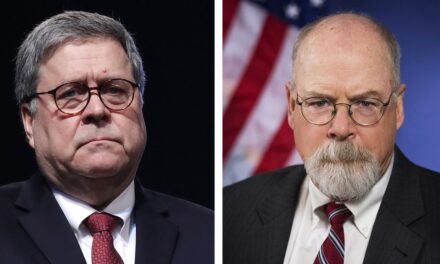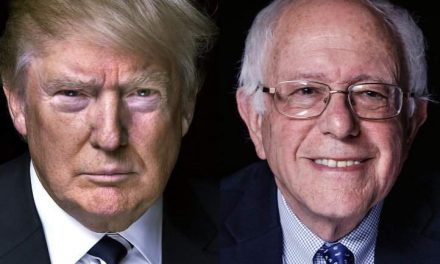I spent a good part of my morning rereading parts of Martin Broszat’s 1987 book Hitler and the Collapse of the Weimar Republic, (a relevant excerpt can be found here). My main focus was to re-familiarize myself with the thinking of the industrial and agrarian leaders who decided to either back Adolf Hitler’s Nazi Party or to at least accede or recommend, in the decisive moment of crisis in 1933, that Hitler be made chancellor. There are some other online resources you can use for this purpose, including simply the Wikipedia pages for the Freundeskreis der Wirtschaft (Circle of Friends of the Economy) and figures like Wilhelm Keppler and Hjalmar Schacht.
This is obviously an enormous topic of study, but I really want to focus on just three things. The first is that the broad right-wing of German politics was alarmed that the communists had done well in the 1932 election. This is really what united aristocratic landowners, wealthy capitalists, and the populist ruffians attracted to Hitler. These groups did not naturally trust or respect each other, but had to build an alliance to keep their common enemy at bay.
The parallel to the American right should be fairly obvious. The postwar Republican Party has always had a tension between respectable country club types and the unhinged and paranoid style of right-wing populism. Fear of economic redistribution and atheism bound them together.
Which leads to a second point, one that Broszat makes here:
What increased the dependence of the old anti-republican and conservative-nationalist elites on Hitler was that nationalist and völkische ideologies had begun to corrode established traditional principles of government and legality well before 1933. The boundaries between [Franz von] Papen’s Young Conservatism and the varied elements of the “Conservative Revolution” that had rallied within the broad framework of Nazism had become fluid long ago.
The contemporary parallel is the blurring of the difference between the Republicanism of Senate Minority Leader Mitch McConnell and that of former president Donald Trump. These two men cannot stand each other, but neither can they carry any degree of power without the other’s assistance and consent. In practice, they are forced to settle on what unites them, and that is not the inviolability of our constitutional system.
What provided the glue for the “fateful” and never harmonious alliance between the conservative elites and the Nazi mass movement which made Hitler’s chancellorship possible, was the aggressive rejection of Weimar parliamentarianism and of the forces that had shaped the Republic. These latter forces-Social Democrats, left liberals and Center Party Catholics had been decried as “Reich enemies” as early as the Bismarckian Empire.
The “nationalist and völkische ideologies” referred to above are represented by MAGA Trumpism, and in order to make alliance with Trump, McConnellism has allowed a kind of “rejection of Weimar parliamentarianism” to take hold. Most obviously, this occurred on January 6, 2021, but it became clear as McConnell’s initial instinct to fight back was subsumed by his realization that his position lacked popularity.
There’s an exact parallel with what happened to the right-wing chancellors who immediately preceded Hitler.
However, the conservative-nationalist forces that aimed at a restoration of this kind were incapable of providing a popular backing for it. And yet without a plebiscitarian base, a stabilization of the situation which industry and commerce, crisis-stricken as they were, were also calling for more and more impatiently, proved ultimately impossible. In this respect the authoritarian presidential governments of Papen and Schleicher remained dependent on the support of the NSDAP [Nazi Party] and this, in turn, made them vulnerable to blackmail by the Hitler movement.
Lack of popularity was the reproach which Brüning had to face many times towards the end of his term of office; this weakness decisively weakened the prestige and the power base of his government. The absence of a popular basis condemned the Papen Cabinet even more strikingly to an ephemeral existence. It was no more than a transitional government on the way to a Nazi seizure of power. [President] Hindenburg refused to hand power to Hitler for a long time. But when he finally and at the last minute changed his mind he was also motivated by a desire to restore the popularity of his presidential regime. Schleicher proposed the risky establishment of a military dictatorship; Papen promised to deliver a popular base, and, faced with this choice, Hindenburg opted for the latter solution.
A small clarification on this last point is merited even though it’s not obviously relevant to our current predicament. Broszat’s argument is that President Hindenburg opted for the gloss of constitutionality represented by appointing Hitler rather than, as the current chancellor recommended, illegally postponing parliamentary elections. And this was because Hindenburg cared about his own legitimacy. In Papen’s proposal, which reluctantly put Hitler in charge, Hindenburg could shield himself behind “a popular base.”
And here’s the decisive point. A good while before the crisis of 1933 which brought Hitler to power, the German right had already made a decision to crush the left by unconstitutional means. But they wanted it to look legitimate. The process began with Papen’s chancellorship and ended with him greasing the skids for Hitler.
When Papen took office and the Social Democrat-led Prussian government was unseated, an irreversible decision had been made to rule through an authoritarian right-wing regime which was not supported by parliament and, in particular, did not take any notice of the political Left, i.e. the SPD and the trade unions.
The goal all along was basically for elites to protect their shit from the rabble. But they very unhappily realized that their goal could not be achieved in either a constitutional manner or without the support of Hitler’s mass movement.
In today’s terms, we saw all the voter suppression shit start under George W. Bush, but actually delegitimizing our elections and supporting a coup didn’t happen until Trump. The goal is to win at all costs, and that’s what unites the old guard with MAGA. As this blurring effect proceeds apace, we see less and less evidence that right-wing establishment organizations with an interest in norms and traditions (e.g. Senate Republicans) can or will hold the line to protect their own prerogatives or the system as whole. McConnell backing down on January 6 is the best signifier of this.
Now I see the Utah Republicans are upset that people are protesting an appearance by Florida Gov. Ron DeSantis at their annual conference by using the swastika symbol. But the symbol serves as an appropriate warning about the way Republicans, very much including DeSantis, are drifting into a very recognizable form of fascism.
Consider that DeSantis is at once most famous for taking on Disney, a giant corporation, and yet is still the great hope of financial elites who feels estranged from Trump’s style of populism. They may resist the devil, but they will still succumb because it’s ultimately about making sure you don’t get any of their stuff.
The right is moving this way because they’re not popular on the merits of their policies. In fact, they can’t even agree on policies anymore because the MAGA base isn’t interested in Wall Street’s concerns. So, we don’t get proposals as much as we get things like DeSantis’s Anti-Woke Campaign.
It’s not seamless. Back in September, wealthy GOP donors flocked to DeSantis and now GOP donors are open to other Trump challengers as they worry DeSantis is the second coming of Jeb Bush.
All of this is my way of saying that sometime in the not too distant future we may be reading a book called [Fill in the Blank] and the Collapse of the American Republic. The “Blank” could be DeSantis. It could be Trump or someone else. But the direction here is looking kind of inevitable in much the same way that in retrospect Hitler’s rise seems inevitable. The problem arises when the political right gives up on representative government. What follows is some form of fascism, and how bad things get depends on details.







